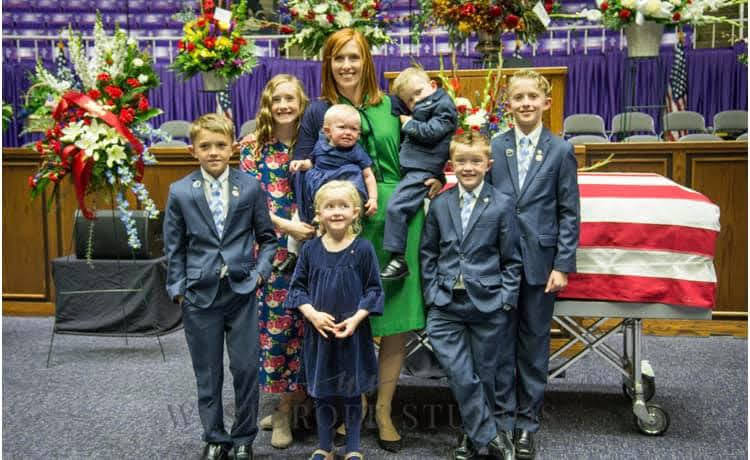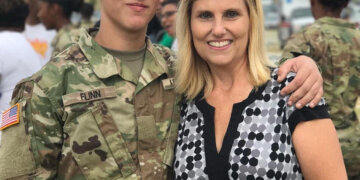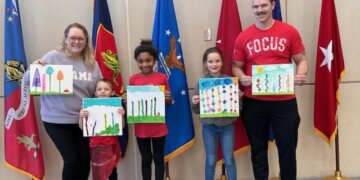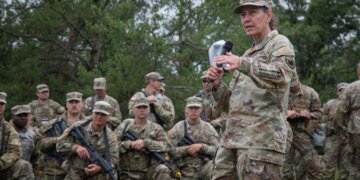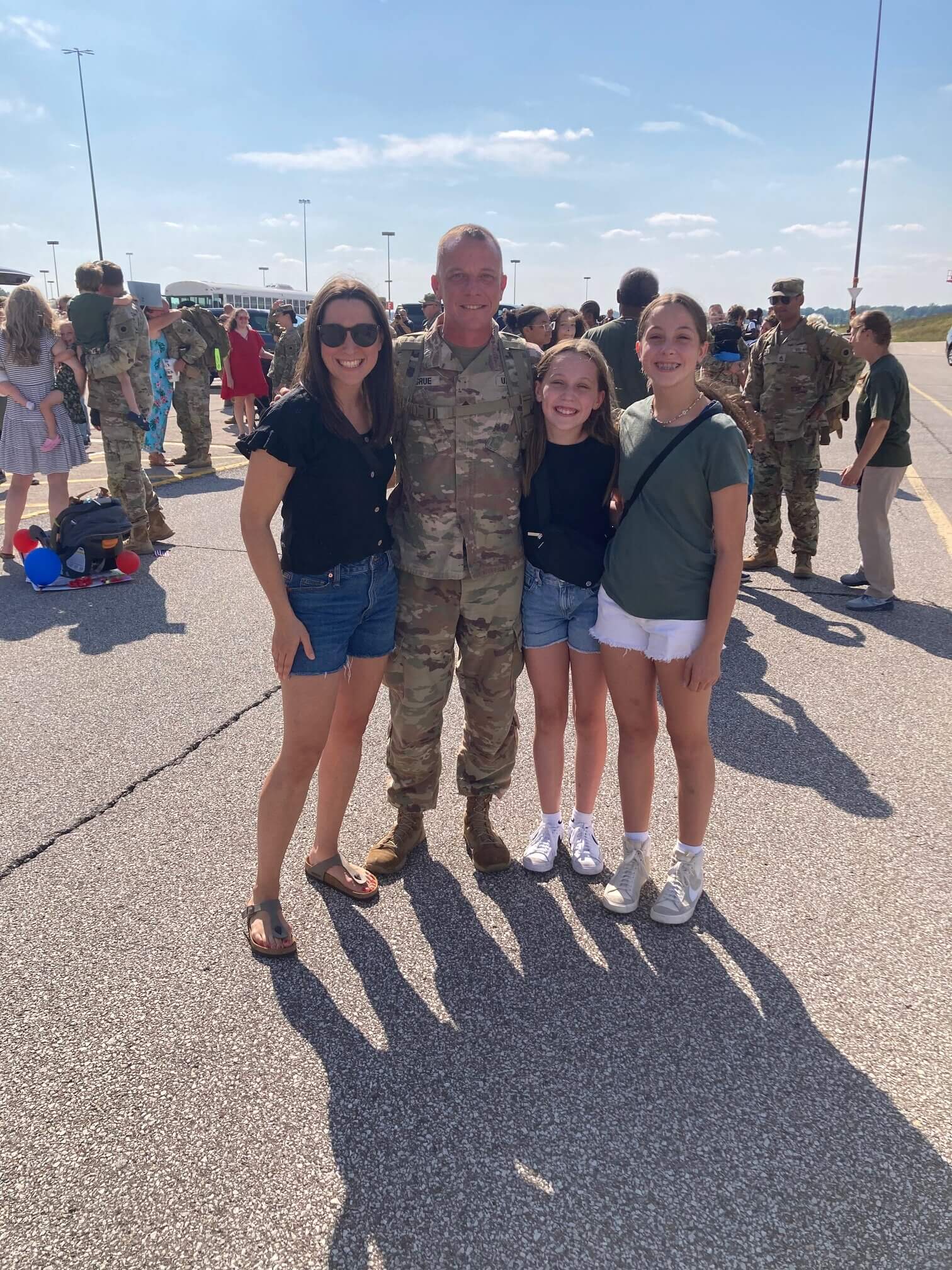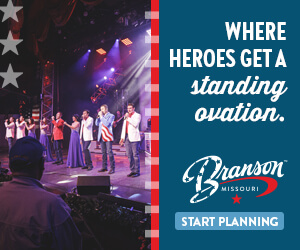Jennie Taylor was a mother of seven who hadn’t held a job in 15 years because she was dedicated to staying home with her children and supporting her husband, Maj. Brent Taylor. But when Brent was killed in an insider attack, everything changed.
“They call it blue on green, where someone he was training from supposedly the Afghan forces we were working with had become indoctrinated with terroristic ideals and began to view my husband as one of the enemies,” Jennie said. “And so he killed him.”
Reports indicate that the attacker was part of the Afghan National Defense and Security Forces and was “immediately killed by other Afghan partner force,” according to U.S. Forces-Afghanistan.
“The most vivid memory I have of that day is just the overwhelming shock,” Jennie said. “I was a military wife for 15 years with seven kids and several combat deployments. I probably should have maybe rehearsed this moment in my mind just in case. But I had not.”
Amid the shock, Jennie still recalls her first words after learning her husband had been killed.
“I think the first words out of my mouth were, ‘They killed him on a hike?’” Jennie said. “Because he and the Afghan soldiers had been on a ruck march. So he wasn’t killed in a big raid or a helicopter crash. Or explosive device on the side of the road. He’d been hiking with his team, ruck marching with his team, and so the shock of the fact that he was dead, the fact that he had died in a vision that didn’t fit combat in my mind, right? That didn’t feel like war.”
The most difficult part of the day, according to Jennie, was telling her children.
“It’s one thing to feel your own pain as an adult, and it’s quite another to feel completely helpless about the pain your children are experiencing,” she said.
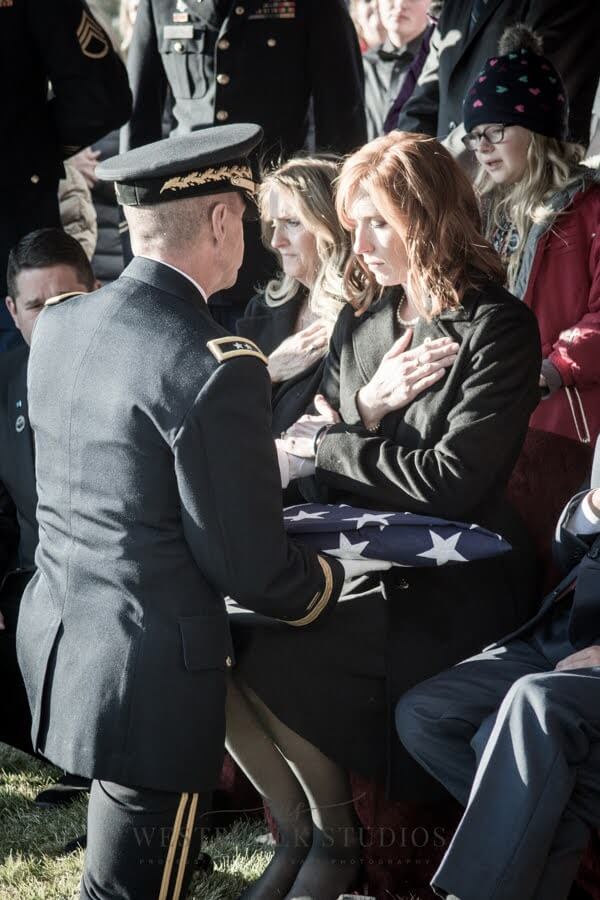
The Taylors’ daughter, Caroline, who is 5-and-a-half, had her first birthday two days after her father’s funeral.
“That’s my little timepiece,” Jennie said.
Now, Jennie is among 10 military-connected individuals serving on the Global War on Terrorism Memorial Foundation’s advisory board.
‘A man of service’
Less than a year after Brent’s death, Shannon Slutman was grieving a loss of her own. Marine Corps Reserve Staff Sgt. Christopher Slutman, also a New York City firefighter, was killed in Afghanistan in April 2019 while conducting combat operations.
Though Shannon and her three daughters have since discussed the night Chris died, the hardest part in that moment was realizing their lives would never be the same.
“We’re still figuring it out now, how to pick up the pieces and move forward, and live as full a life as possible, without him, even though we always say that he’s always with us and he guides us,” Shannon said.
RELATED: Beyond the burn pit: Nonprofit aids families of service members killed by toxic exposure
Chris, according to Shannon, was “what you would want any American to be” – and a “fantastic father.”
“He Joined the Marine Corps at 29 because he wanted to serve his country,” Shannon said. “And he believed so strongly in the country’s values and making sure that we protected that.”
After Chris’s death, Shannon also joined the GWOT Memorial Foundation Advisory Board.
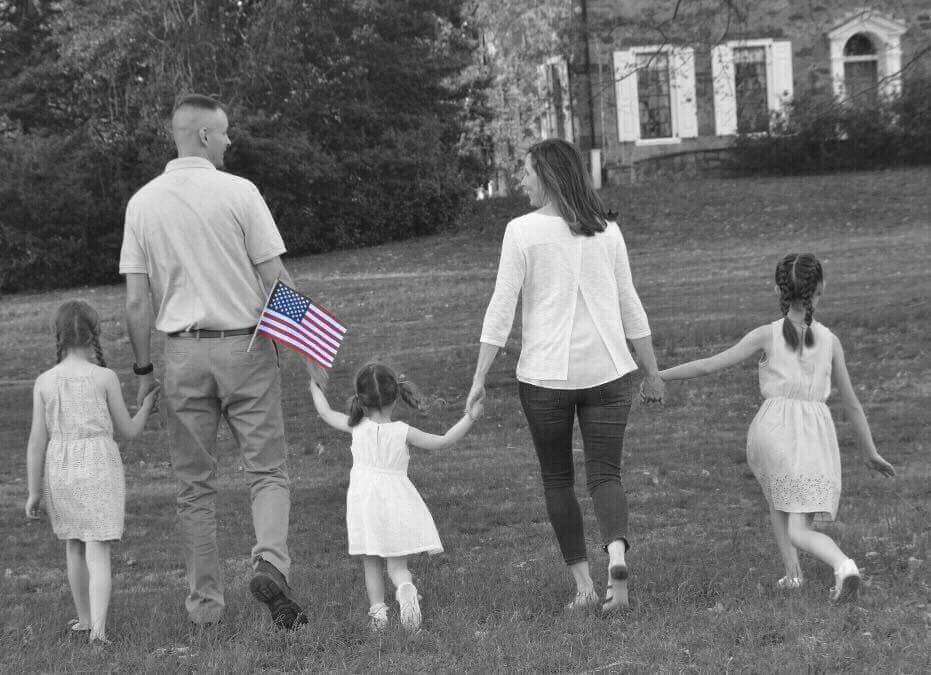
“It was something that I wasn’t aware of,” she said of the foundation prior to her involvement. “It was not something that was widely discussed, and this was early in the stages where we were just trying to get permission to build within the reserve.”
The GWOT Memorial Foundation was founded in 2015 and heads the effort to build a Global War or Terror Memorial at the National Mall in Washington, D.C. Earlier this month, the foundation announced finalists for candidates to design the memorial.
Gold Star widows put face to mission
Shannon said the “total package” of what the memorial represents made her want to be involved with the organization.
“As a military widow, I’m raising three kids – I have three daughters – and how do you not want to be part of building something on sacred land that is going to help my children to heal and to know that their father is never going to be forgotten?” she said.
Jennie said the job of those who are family members from the war is to “put a face to the mission.”
“You can give numbers all day long, and those are important, but there’s nothing more important than the face and the story behind that face,” Jennie said, “and I know, even saying that, that I’m one of very, very many. My children are seven of very, very many who play a particular role in this war that’s been fought.”
But the memories she and her children carry are only part of a larger legacy, according to Jennie.
“The legacy is so much bigger than our memories,” Jennie said. “And both in the foundation we have here in Utah in my husband’s name and of course this beautiful Global War on Terrorism Memorial Foundation, I think they exist to help us remember those involved in this particular set of memories and how they carry on the legacy that began long before them.”
When Shannon began working with the GWOT Memorial Foundation, one of her first speaking engagements was at Mission BBQ, after which she officially joined the advisory board.
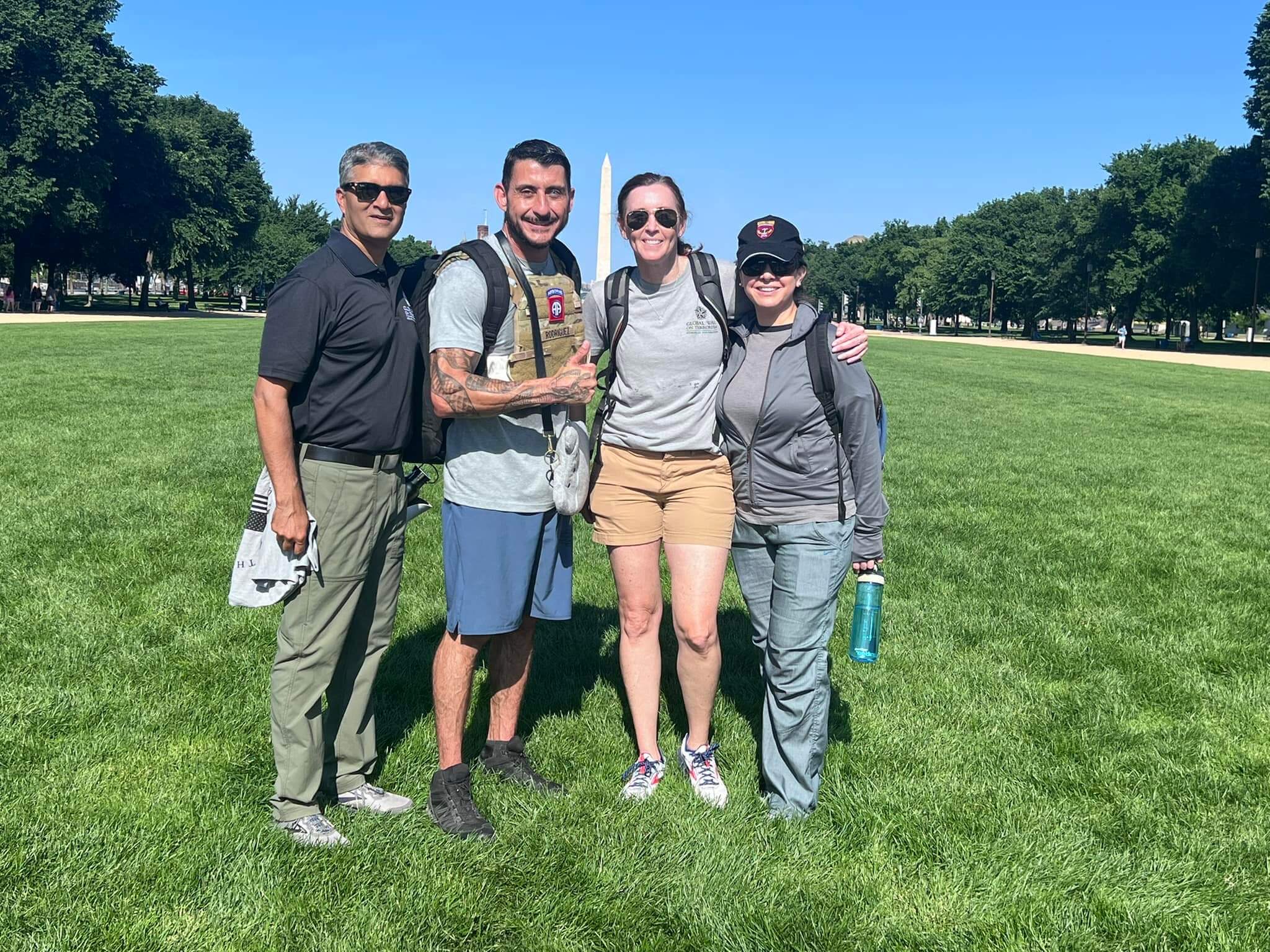
“We bring our own perspective,” Shannon said of the advisory board. “It’s made up of variety of different people, different backgrounds and our role is to basically give a different voice. It just creates a very well-rounded organization where it’s not single voice. It’s multiple voices.”
The most important thing that those involved with the foundation can do, according to Shannon, is help people in their “journey to heal.”
“We’re never fully healed,” she said. “Whether it’s because you lost a loved one, because you went overseas and fought in the war, but you came back. But you came back with scars. It’s to help people to heal. It’s to bring people together under a common mantle of sorts.”
Awareness is key
Shannon, whose uncles served during the Vietnam War, said she saw over the course of their lives the value the Vietnam War Memorial had in the healing of veterans from that era. But at the same time, her grandfather, a World War II veteran, died before that war’s memorial was complete.
That said, she would like to see the same passion toward building the GWOT Memorial as that has been behind others, particularly the WWII memorial.
“I remember that energy that was associated and the anticipation of building this for the greatest generation,” Shannon said. “And I would love for more people to know this is something that we’re working toward so that they can also see that this is a monument that will – it’s not just for those that we lost, but for those that are here. And to show them that we are still there for them.”




